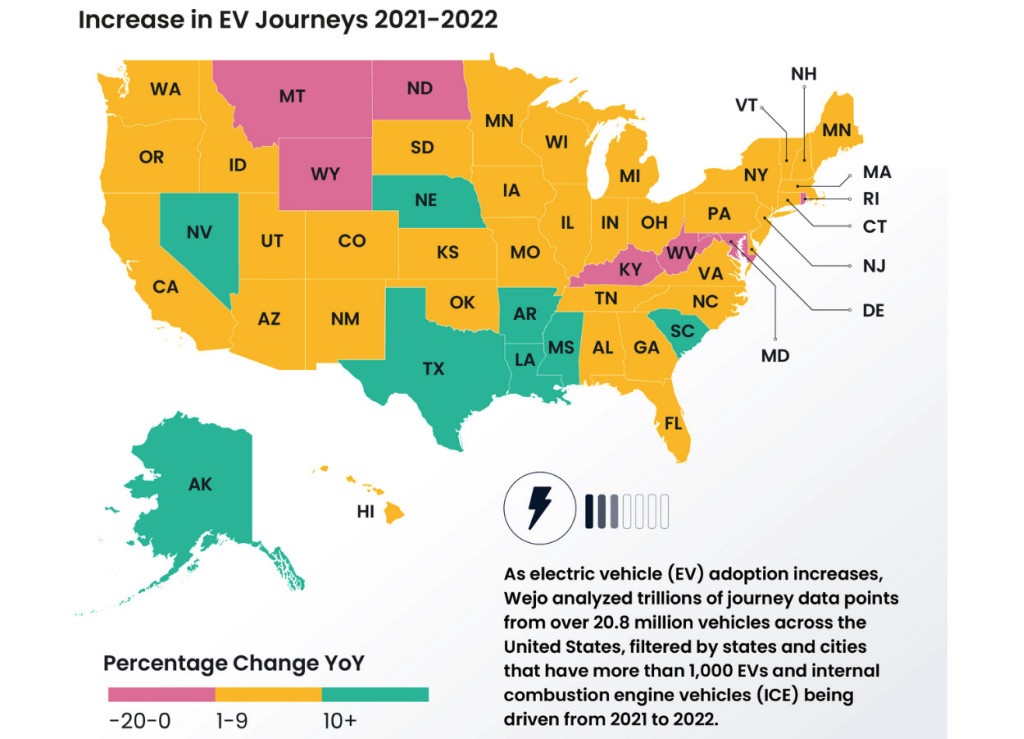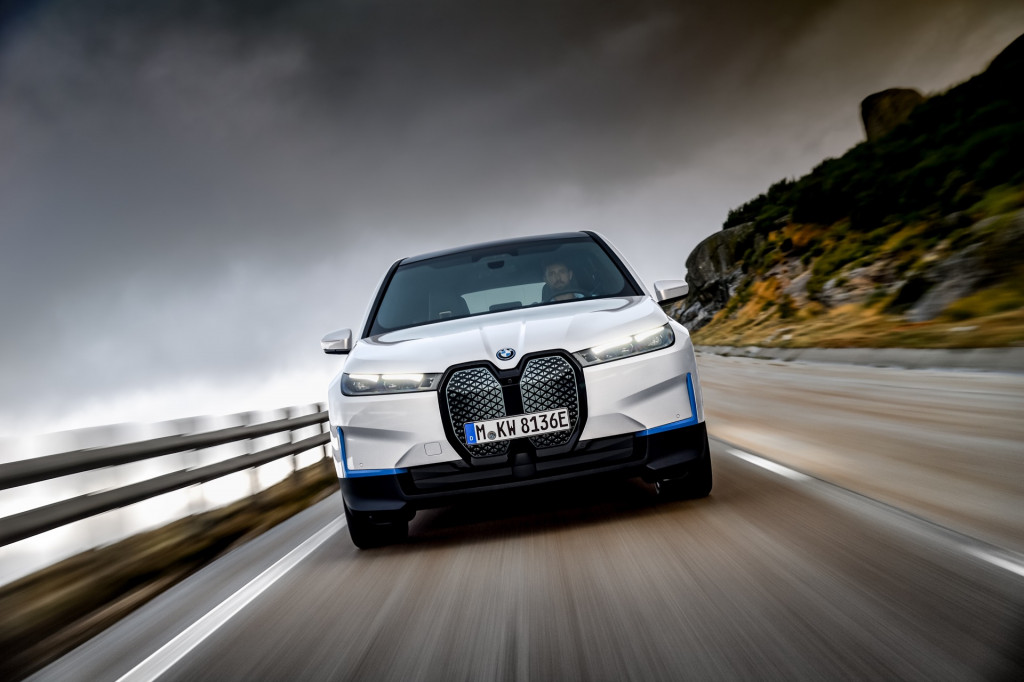The average length of trips done in electric vehicles has been going up, and it may equal internal-combustion vehicle trip lengths within the next 18 months, according to new analysis. It's an indication more buyers might be directly replacing gasoline models with EVs, and that range anxiety may be waning.
These conclusions come from UK-based data analytics firm Wejo Group Limited, which used real-world trip data from connected cars. The findings are based on "trillions of data points from billions of vehicle journeys taken by over 11 million vehicles across the United States," filtered by states and cities that have more than 1,000 EVs and internal-combustion vehicles on their roads, the company said in a press release.
Currently across the U.S., the typical daily EV trip length is about 30 miles, while it's just under 33 miles for gasoline vehicles.
Of the metro areas surveyed, many saw increases in average EV trip lengths in 2022 compared to 2021, according to the analysis. The biggest increases were reportedly in Toledo, Ohio; Bakersfield and Fresno, California; and Plano, Texas, at 11% to 17% from 2021.

Increase in EV journeys 2021-2022 (from Wejo Group Limited)
At the same time, many of the same metro areas—including Bakersfield and Fresno, as well as Stockton, California; Reno, Nevada; and Anchorage, Alaska—reportedly saw decreases in internal-combustion vehicle trip lengths, ranging from 3% to 5% shorter.
On the state level, South Carolina saw the biggest jump in EV trip lengths, at 22%, followed by Texas and Nevada at 10%, and Michigan and Indiana, which both saw average distances driven in EVs increase by 9% in 2022. Some states also saw decreases in average internal-combustion trip lengths, with Montana, Alaska, Wyoming, North Dakota, and Delaware having the largest gaps, at 4% to 6% shorter than 2021.
Years ago, studies found that anxiety over available range was keeping people from jumping to an EV for everyday driving. But that appears to no longer be the case. Admittedly, underestimating EV capabilities has been an issue throughout. Even back in 2012, not including the Tesla Model S, a study suggested that 95% of all trips could be made in an EV. As several studies have pointed out over the years, just owning an EV will quell some common concerns.

2023 BMW iX xDrive50
An issue that first surfaced in 2009 has become more of a concern—charging anxiety, or the worry that even when a charger is nearby, it won't work. Charging infrastructure has expanded greatly since then, but reliability is still a concern. It's the exact opposite of the situation when electric cars first appeared over a century ago, when the lack of fuel stations made gasoline range anxiety prevalent, with EV charging seeming easy by comparison.
Eliminating range anxiety is important for increasing EV adoption, but to meet the ultimate goal of reducing emissions across the vehicle fleet, Americans need to be driving a lot less. That seems to happen only when gas prices spike, however.












